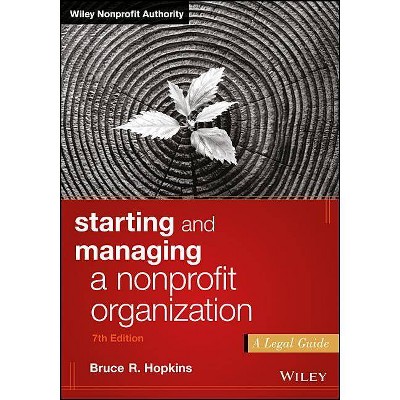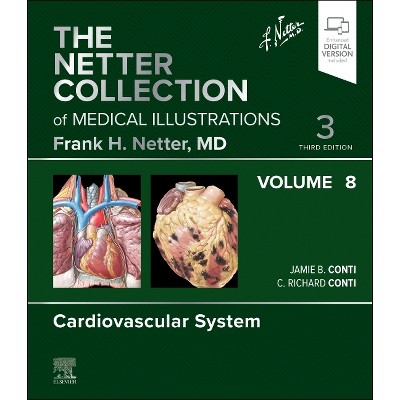Sponsored

Managing Medical Authority - by Daniel A Menchik (Hardcover)
$95.00Save $15.00 (14% off)
In Stock
Eligible for registries and wish lists
Sponsored
About this item
Highlights
- How the authority of medicine is continuously shaped by relationships among physicians, industry, colleagues, and organizations Exploring how the authority of medicine is controlled, negotiated, and organized, Managing Medical Authority asks: How is knowledge shared throughout the profession?
- About the Author: Daniel A. Menchik is associate professor of sociology at the University of Arizona.
- 328 Pages
- Social Science, Sociology
Description
About the Book
"How the authority of medicine is continuously shaped by relationships among physicians, industry, colleagues, and organizations Exploring how the authority of medicine is controlled, negotiated, and organized, Managing Medical Authority asks: How is knowledge shared throughout the profession? Who makes decisions when your heart malfunctions-physicians, hospital administrators, or private companies who sell pacemakers? How do physicians gain and keep their influence? Arguing that medicine's authority is managed in collegial competition across venues, Daniel Menchik examines the full range of stakeholders driving the direction of the field: medical trainees, clinicians, researchers, administrators, and even the corporations that develop groundbreaking technologies enabling longer and better lives.Menchik takes us into Superior Hospital to witness surgeries and executive negotiations. He moves outside the hospital to watch professional committees craft standards for treatments, case management, and professional ethics. At industry-sponsored meetings, he observes company representatives who train some experienced doctors on their technologies, while deterring others who they think might injure patients. Using an innovative ethnographic approach tying individual actions and their collective consequences, he considers how stakeholders ally across the various venues of medicine, even as they are sometimes pressed into competition within those venues. Menchik finds that these alliances and rivalries strengthen the authority of medicine as a whole. From place to place, and group to group, we see how a medical specialty renews and reinvigorates itself.Beginning within the walls of the hospital, and moving to the professional and commercial venues that shape it, Managing Medical Authority offers an agenda-setting take on the social organization of medical authority"--Book Synopsis
How the authority of medicine is continuously shaped by relationships among physicians, industry, colleagues, and organizations
Exploring how the authority of medicine is controlled, negotiated, and organized, Managing Medical Authority asks: How is knowledge shared throughout the profession? Who makes decisions when your heart malfunctions--physicians, hospital administrators, or private companies who sell pacemakers? How do physicians gain and keep their influence? Arguing that medicine's authority is managed in collegial competition across venues, Daniel Menchik examines the full range of stakeholders driving the direction of the field: medical trainees, clinicians, researchers, administrators, and even the corporations that develop groundbreaking technologies enabling longer and better lives. Menchik takes us into Superior Hospital to witness surgeries and executive negotiations. He moves outside the hospital to watch professional committees craft standards for treatments, case management, and professional ethics. At industry-sponsored meetings, he observes company representatives who train some experienced doctors on their technologies, while deterring others who they think might injure patients. Using an innovative ethnographic approach tying individual actions and their collective consequences, he considers how stakeholders ally across the various venues of medicine, even as they are sometimes pressed into competition within those venues. Menchik finds that these alliances and rivalries strengthen the authority of medicine as a whole. From place to place, and group to group, we see how a medical specialty renews and reinvigorates itself. Beginning within the walls of the hospital, and moving to the professional and commercial venues that shape it, Managing Medical Authority offers an agenda-setting take on the social organization of medical authority.Review Quotes
"Innovative and theoretically compelling. . . . Managing Medical Authority joins a short list of the most authoritative studies of professions while developing an important and actionable conceptual toolkit."---Daniel R. Morrison, Contemporary Sociology
"The questions that are both answered and raised within Managing Medical Authority render it a deeply captivating and thought-provoking book."---Lauren D. Olsen, Social Forces
About the Author
Daniel A. Menchik is associate professor of sociology at the University of Arizona.Dimensions (Overall): 9.3 Inches (H) x 6.2 Inches (W) x 1.0 Inches (D)
Weight: 1.3 Pounds
Suggested Age: 22 Years and Up
Number of Pages: 328
Genre: Social Science
Sub-Genre: Sociology
Publisher: Princeton University Press
Theme: General
Format: Hardcover
Author: Daniel A Menchik
Language: English
Street Date: November 30, 2021
TCIN: 94277603
UPC: 9780691223568
Item Number (DPCI): 247-22-2298
Origin: Made in the USA or Imported
If the item details aren’t accurate or complete, we want to know about it.
Shipping details
Estimated ship dimensions: 1 inches length x 6.2 inches width x 9.3 inches height
Estimated ship weight: 1.3 pounds
We regret that this item cannot be shipped to PO Boxes.
This item cannot be shipped to the following locations: American Samoa (see also separate entry under AS), Guam (see also separate entry under GU), Northern Mariana Islands, Puerto Rico (see also separate entry under PR), United States Minor Outlying Islands, Virgin Islands, U.S., APO/FPO
Return details
This item can be returned to any Target store or Target.com.
This item must be returned within 90 days of the date it was purchased in store, shipped, delivered by a Shipt shopper, or made ready for pickup.
See the return policy for complete information.











